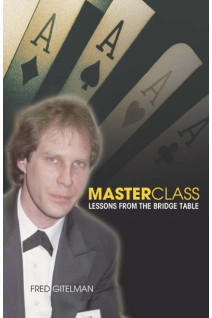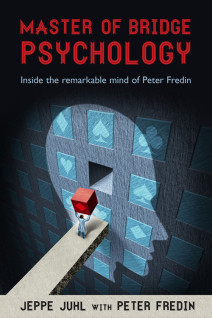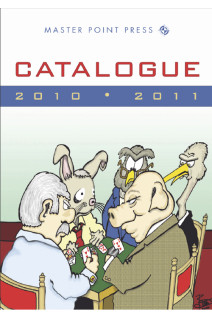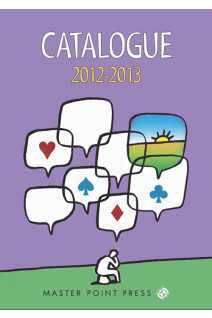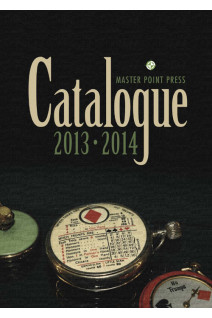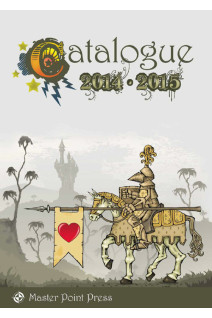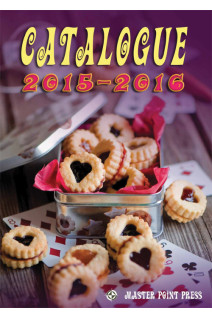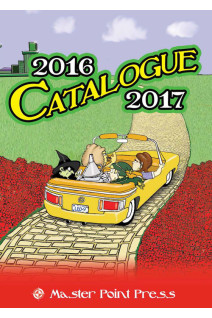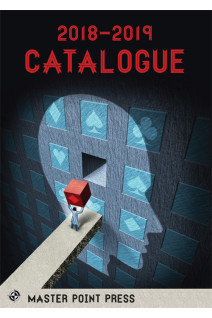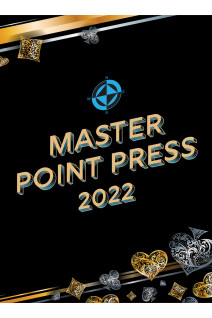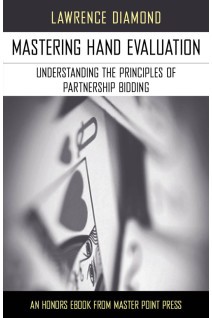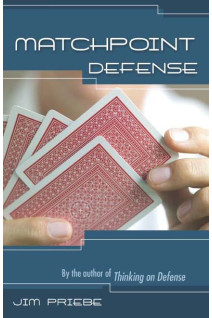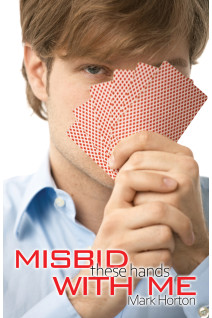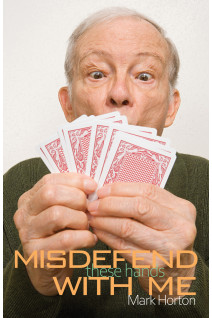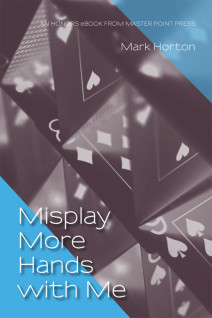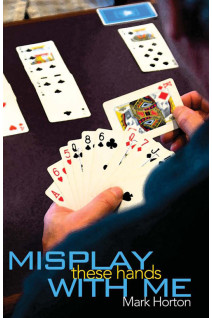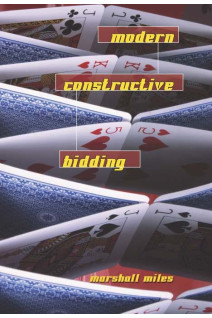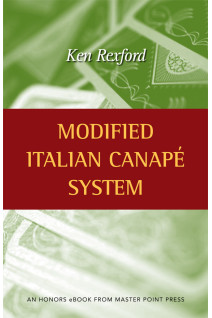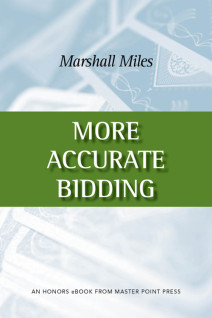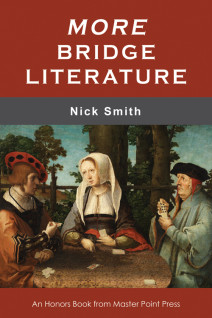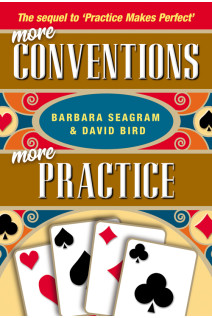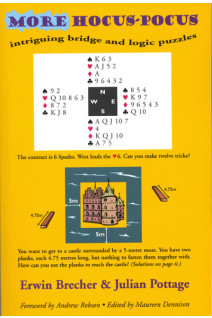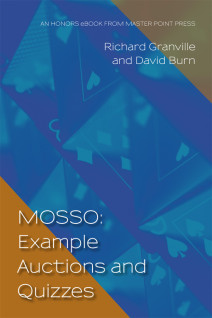All titles available from Master Point Press
Below is a complete list of all titles from Master Point Press
Master Class
Imagine sitting beside a world-class bridge player and being able to listen to his thoughts as each hand develops... you can help but improve your own game! Every hand in this fascinating book comes from actual play; many of them are taken from the author's own experience in world-level competition. Fred Gitelman believes that there is something to be learned from every bridge hand, whether you are a novice or an expert, and he proves it here. Just as fascinating as the bridge, however, are Fred's observations on his partners and opponents, who range from world champions to famous amateurs like Bill Gates and Warren Buffett.
Master of Bridge Psychology
This may be the funniest bridge biography you will ever read. Peter Fredin of Sweden won the 2009 European Pairs championship, and is a multiple medalist in events at the world level. His style and approach to bridge owe more to psychology than to the mathematics of the game, something that often lands him in unusual situations at the table. Being one of the world’s best card players, he can generally find a way to extricate himself. Danish journalist Jeppe Juhl, a close personal friend of Fredin, has collected some of Fredin’s best and worst moments into a book that offers superlative entertainment for any bridge player.
Master Point Press 2010-2011 Catalogue
Download a PDF version of our the 2010-2011 catalogue. For a more recent catalogue, please see:2011-2012 Master Point Press Catalogue
Mastering Hand Evaluation
Advance Your Partnership Communication Getting to good games, slams, and staying out of poor contracts is an important aspect of bridge. The best way to improve your bidding is not to add a new convention but to improve your hand evaluation skills. In Mastering Hand Evaluation: Understanding the Principles of Partnership Bidding you will learn about the science of hand evaluation, going far beyond 4-3-2-1 high card points. Enhance your ability to recognize good cards and discover the magic of the 30-point deck. Popular point count and losing trick count methods are examined and tested using a database of over 121,000 hands from championship play as well as practice matches with at least one world champion at the table. Improvements to the best methods are introduced based on the results.
Matchpoint Defense
If defense is the hardest part of playing bridge (and it is!) then defending at matchpoint scoring is the toughest challenge a player can face. Every trick matters, irrespective of the contract, and every decision is potentially critical. In Thinking on Defense Jim Priebe introduced the idea of visualization, picturing likely hands for declarer and basing defensive strategy on those. In this book he show how to apply the same methods when playing in matchpoint events, which means essentially every pairs competition.
Matchpoint Tricks
A collection of declarer play problems in matchpoint pairs. How do you manufacture that vital overtrick, or, just as importantly, give the defenders a chance to go wrong? A book for all duplicate players.
Misbid These Hands with Me
In 2007, Horton wrote Misplay These Hands with Me, a deliberate homage to Reese's classic, Play These Hands with Me. The difference was that the declarer in Horton's book always made an error, sometimes obvious, sometimes not so much. This successful book was the basis of a long-running column in the ACBL's Bridge Bulletin, a sequel in 2019, and earlier this year, Misdefend These Hands with Me. Now the same author turns to the topic of bidding, and once again gives the reader a chance to learn from someone else's mistakes. All the deals are taken from top-level play.
Misdefend These Hands with Me
In 2007, Horton wrote Misplay These Hands with Me, a deliberate homage to Reese's classic, Play These Hands with Me. The difference was that the declarer in Horton's book always made an error, sometimes obvious, sometimes not so much. This successful book was the basis of a long-running column in the ACBL's Bridge Bulletin, and a sequel appeared in 2019. Now the same author turns to the topic of defense, and once again gives the reader a chance to learn from someone else's mistakes. All the deals are taken from top-level play. Reviews "This book is definitely one of the top ten bridge books of the year. The book is not only deliciously entertaining, but educational as well." -- George Retek "Accurately designated on the back cover as suitable for Intermediate to Advanced players, Horton's latest has a veritable wealth of intriguing and challenging deals culled from his own adventures (and misadventures!) at the table." -- Paul Thurston, National Post
Misplay More Hands with Me
This is the sequel to Misplay These Hands With Me (MPP, 2007), which is based on Horton’s popular series of articles in the ACBL Bulletin. In an over-the-shoulder style, the author offers an account of a plausible line of play on each example hand, always without success, then gently points out how the contract could and should have been made with just a little more thought. Perfect for improving players.
Misplay These Hands With Me
The late Terence Reese, perhaps the greatest bridge writer of all time, introduced the over-the-shoulder style of bridge writing in his classic Play These Hands with Me. In this wry homage to the master, Horton leads the reader through a plausibly logical line of play on each instructive deal, but one that ends in failure. In each post-mortem, the 'expert' realizes how he could have improved on his play, and (usually) have made his contract. The deals are all from top-class events, which prove to be a remarkably fertile source of such material. A book filled with subtle humor and great bridge. Reviews Misplay with Me is the best written bridge book since Reese. I thoroughly enjoyed it. - Charles Lipman
Modern Constructive Bidding
The logical follow-up to the author's best-selling Competitive Bidding in the 21st Century, this book deals with the latest expert thinking on constructive auctions at bridge. As usual, Miles' ideas are cutting edge, and not everything he recommends will appeal to everyone. However, also as usual, he challenges his readers to think and question what they are currently doing, and convince themselves that it is indeed the best approach.
Modified Italian Canapé System
In this book, Ken Rexford introduces the strong club relay system with canapé bidding that he played successfully for years. His approach is novel, but it is also one that is easy to learn and play. Most importantly, the entire system fits within the ACBL General Convention Chart. As with his first book, Cuebidding At Bridge, Ken Rexford spends much time explaining the theory and thinking behind canapé sequences, so that the reader will understand the approach rather than simply memorizing a list of conventions. The author also includes a basic scheme for converting your system from Precision to Canapé, or even from Standard all the way to Canapé , all in easy steps. For those who are intrigued but intimidated by Canapé, this extra material should help to ease the transition.
More Accurate Bidding
This is not a book for beginners, and will not bore you with rehashing things you already know. Some of the topics are somewhat controversial, and as always Marshall Miles urges his own, often original, point of view. You may not be persuaded by everything he recommends, but perhaps you will adopt part of it, and it won't hurt you to discover how some other people play, even if you refuse to play that way yourself. Here are some of the topics discussed: Game invitations after a raise of opener's major Fast arrival and picture bids When the opponents double a transfer or Stayman Mini splinters Mini Roman 2♦ The Kaplan Interchange Rubens advances of overcalls Ways to show two-suiters The Wolff signoff Inverted minors Playing in the opponents' suit Balancing As he often does, Miles ends this book with an 'It's Your Call' bidding quiz, with detailed discussion of options and the rationale for his own choices.
More Bridge Literature
Nick Smith's first book, Bridge Literature, was originally published by Cadogan Books in 1993 and has since been acclaimed as one of the quirky classics of the game. More Bridge Literature takes a similar form, as a set of parodies of well-known works of English literature. King Lear finds himself playing for France, Winnie-the-Pooh makes his first slam and Lady Bracknell proves hard to impress. Sherlock Holmes' deductive skills fail him for once, Robinson Crusoe takes drastic action and there's a lot of fumbling under the table at Cold Comfort Farm. More Bridge Literature is an irreverent and humorous take on much-loved literary classics. Most of the deals are also presented in quiz-form. Readers are encouraged to attempt these declarer-play problems before reading the stories in which the deals are located. But be warned — these may be the toughest single-dummy problems ever published! If you solve even half of these, you are a current or future international player.
More Conventions, More Practice
You asked for more! Following the runaway success of Practice Makes Perfect, bridge teachers asked the authors to produce a similar companion book to 25 More Bridge Conventions You Should Know. And here it is -- a brief summary of each of those 25 more conventions, together with example hands that can be dealt out and used to apply your new knowledge.
More Hocus Pocus
Master puzzler Erwin Brecher teams up with top bridge problemist Julian Pottage to present as second collection of bridge problems, math brain-teasers and logic puzzles.
MOSSO: Example Auctions and Quizzes
For the last 3 years, the authors have been developing MOSSO, a new bidding system derived from 2/1, Fantunes and Polish Club. MOSSO brings together the best features of its parent systems, while providing an effective interface between them. The system has been the subject of enthusiastic discussion on the popular website bridgewinners.com. This second volume contains example auctions and quizzes. The first volume, The Mosso Bidding System, describes the full system in detail.
